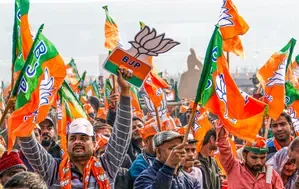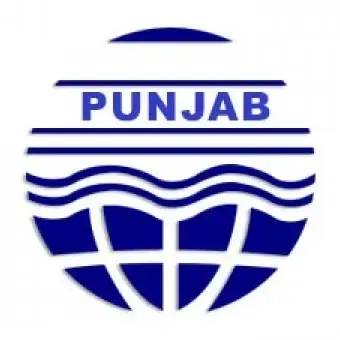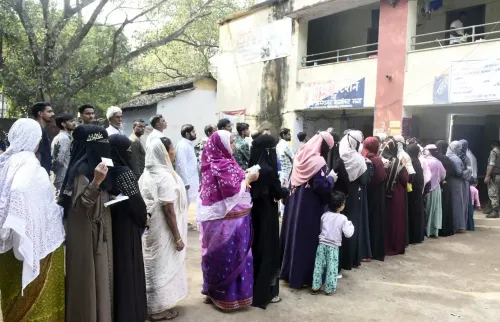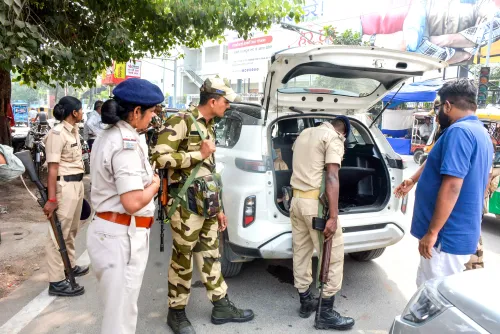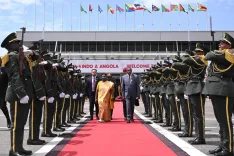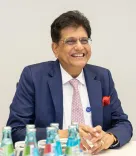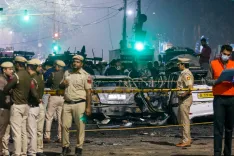Could India-Canada NSA Talks Indicate a ‘New Normal’ in Diplomatic Relations?
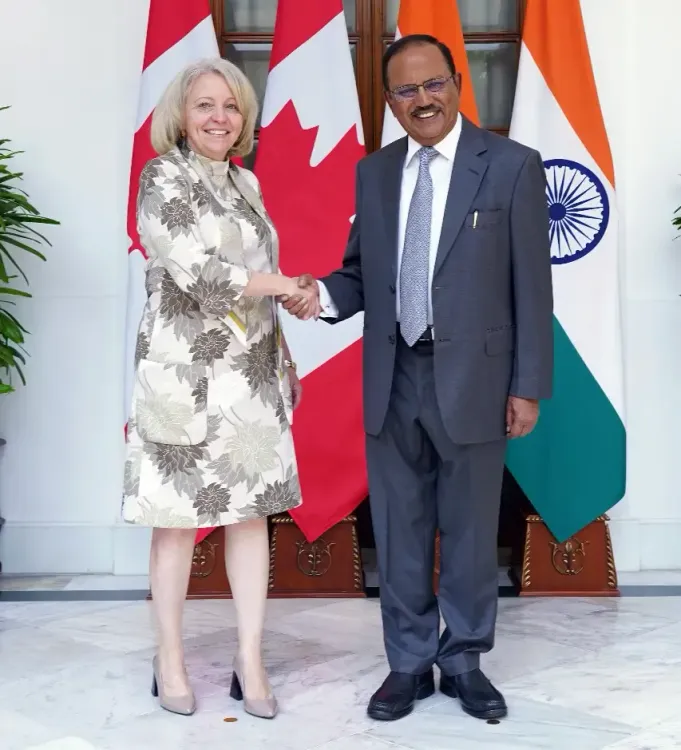
Synopsis
Key Takeaways
- Structured engagement is key to managing sensitive issues.
- Both nations aim for a rules-based framework in their relationship.
- Incremental and reciprocal actions are prioritized.
- Focus on combating transnational organized crime and terrorism.
- Canada's legal framework allows for logical enforcement without political interference.
New Delhi, Sep 26 (NationPress) The recent dialogue between National Security Advisor (NSA) Ajit Doval and his Canadian counterpart, Nathalie G. Drouin, demonstrated a meticulously crafted rules-based framework aimed at addressing the most sensitive areas of the India-Canada relationship, according to a report released on Friday.
Sanjay Kumar Verma, a former Indian diplomat and the nation’s past Ambassador to Ottawa, remarked that this situation encapsulates the essence of the new normal: gradual, reciprocal, and intentionally modest, designed to avert conflicts from compromising the broader relationship rather than resolving each individual issue.
“When Ajit Doval and Nathalie Drouin convened in New Delhi on September 18, 2025, it signified a notable milestone: the re-establishment of a structured channel to navigate differences and bolster cooperation. After two years of disconnect, both parties are not attempting to revert to the past; instead, they are cautiously forging a new normal based on reciprocity, established regulations, and operational trust,” Verma, now the Chairperson of the Research and Information System for Developing Countries (RIS), stated in India Narrative.
“This meeting was framed as part of an ongoing security dialogue, representing a methodical re-engagement rather than a dramatic restart. For India, the priorities were unmistakable—combating terrorism, upholding territorial integrity, protecting sovereignty, and tackling transnational organized crime. Conversely, Canada’s priorities revolved around non-interference, rule of law, sovereignty, and countering transnational repression,” he added.
The veteran diplomat highlighted that what emerged was not an overarching strategy but a pragmatic alignment, emphasizing a mutual intent to navigate the relationship through principles and mechanisms rather than political theatrics.
As per the report, the apprehension of Khalistani extremist Inderjit Singh Gosal in Ontario post-NSA meeting illustrates this budding new normal. India has long recognized Gosal as a coordinator for the Khalistani faction Sikhs for Justice (SFJ)—an organization officially banned since July 2019 under the Unlawful Activities (Prevention) Act for inciting separatism and endorsing violence in the name of Khalistan.
“Gosal's arrest on firearms-related charges followed years of Indian grievances about reactive enforcement in Canada. Ottawa's previous stance, under former Prime Minister Justin Trudeau, which emphasized protections for expression and assembly, had led to perceptions of leniency. His September 2025 arrest, however, highlighted that, devoid of political interference, logical enforcement can operate within Canada’s legal framework,” the report elaborated.
“For India, this signifies that structured engagement can produce outcomes. For Canada, it validates that such actions align with its legal framework and sovereignty, rather than being a concession to external pressures,” it concluded.

